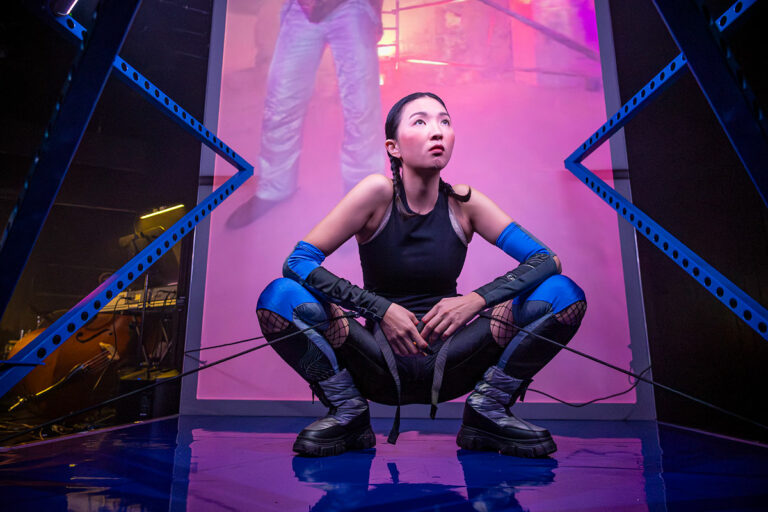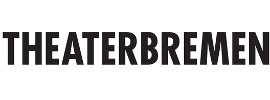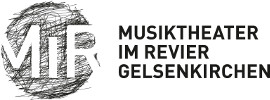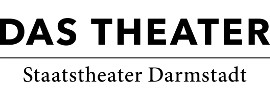is a freelance composer, director and performer. He is interested in exploring musical boundaries and exploring new technologies in an artistic context.
works as an artist, sound designer, DJ and performer in the independent scene, radio play, podcast, installation, experimental film and theatre. She also runs workshops on miking and sound design and writes about female* composers and sound artists for the fanzine ‘grapefruits.online’, among others.
works as a freelance artist at the crossroads of conceptualisation, aesthetic research and artistic intervention. Recurring forms of work are piece development, specifics and immersive spatial installations.
works as a musician, composer for theatre music and performer with a focus on figure, material and object theatre as well as musical exploration of poetic texts.
works as an actor for film and television. He is co-founder of the light art collective ‘GODALIGHT’ and the theatre collective ‘SAILOR TUNE’. He regularly collaborates on joint projects with various artists and collectives.
is a freelance artist and founding member of the artist duo ‘studio beisel’. His work moves between experimental piece development, immersive multimedia installations and visual art.
is a multi-award-winning composer of experimental music and multi-instrumentalist. He has composed for film, theatre and poetry readings and performs as a drummer and pianist in various band constellations.
works as an artistic production manager and theatre maker in the independent scene, as well as an author for audio description. She studied staging of the arts and media in Hildesheim.
The composition team1 meets for the first time in the spring-like capital.
On the first evening, of course, it’s off to the pub, where else to go with all the happiness!
We discuss the first libretto drafts and look for suitable forms of expression, tonal conceptual equivalents to the story.
Opera, the conservative, the established music system. Noise as a call for freedom, punk as a sledgehammer. We want to deconstruct opera.
We discuss experimental approaches to the voice,
Diamanda Gallas.
Chainsaw Man too.
The transition from sound to voice reminds us of Hermeto Pascual and we imagine inviting him and his flow into our piece.
But already dead! What a pity!
The transition from sound to voice as a psychological process. The Electronic Voice Phenomenon could enable us to make the transition from radio noise to spoken voices and chants.
How can spoken language be composed, tonalised, modulated or rhythmised?
How can we create interesting forms of audience participation?
The attempt to compose as a foursome is also new territory for us.
We want to use songs, classical composition, electronic soundscapes and the noisiness of our stage objects.
After the meal, we show Richard various songs from agitprop and begin to develop initial sketches from them.
Overall, we realise that we see the libretto as a collection of material.
A scene plan will serve as the basis for our composition, which we want to finalise in the large group over the next few weeks.
Theatrical elements, psychology, text, music and objects are to be given equal weight in the development process.
We don’t want to establish an artistic hierarchy of a department. This is time-consuming and small-scale, but we trust that something that transcends us all can grow from the diversity of all the voices in our group.
The next joint appointment on site, in addition to endless Zoom meetings, will be the first viewing of the stage design at the end of May in Kassel.
There we can finally start to move from theory to action.
1 Richard Grimm, Mathias Baresel, Antonia Beeskow

Nayun Lea Kim not in the role of the "Fan", but in the role of the gamer of the "Fan" avatar. Photo: Sascha Kreklau
Successful premiere of “Freedom Collective” at the MiR. Where have we got to from my point of view?
Davor Vincze’s score is certainly the most challenging that the theatres have ever had to deal with as part of NOperas! Fears that the agreed number of orchestral rehearsals would not be enough were not realised at the MiR: Premil Petrović – as musical director from out of town and also part of the project team – was impressed by the commitment and virtuosity of the Gelsenkirchen musicians after the very first rehearsal. He was equally full of praise for the perfectly cast quartet of four singer-actors. And hats off to the MiR’s sound department for the seamless spatialisation of the sound and for the perfect amalgamation of live musical events and electronic playback.
Davor Vincze has also written by far the most “operatic” NOperas! score to date, including, one is amazed, a love duet that is hardly inferior to Der Rosenkavalier in terms of culinary delights. Pathos and beautiful sound, which for a long time were definitive “no-nos” for composers who did not want to chum up to the music theatre business, are finding new honours. But every sound remains advanced. His music never falls back into the epigonal or harmlessly eclectic. Where is the difference between the real and the unreal, between statement and irony and quotation? I am still struggling with it.
Now, the name of the NOperas! programme includes the word “not” alongside “opera” – it is intended to be about projects that also break new theatrical ground. Projects that, in whatever way, go beyond the traditional narrative of the opera genre. When awarding the project, the jury expected this above all from the concept of using smartphones to involve the audience in the musical theatre experience. In most people’s opinion, this was only partially realised, at least in this first stage of the project at the MiR. For some, their browser got in the way. Those who were “connected” instead hardly experienced anything additional in terms of substance. One woman I spoke to, who must have been barely thirty, even reacted allergically: “I’m going to the theatre to finally get away from this thing, but even here everyone is fiddling with their mobile phones now!” If this complaint is essentially also directed at the NOperas! jury, then the demands to involve the audience as actors in the theatre events already had to be scaled back in the end with “Chaosmos”, the first NOperas! production. The idea of gamifying musical theatre is currently on the minds of many. Rarely have I seen this goal achieved in a convincing way. But Bremen and Darmstadt are still waiting here.
The fact that even the first development stage of “Freedom Collective” fulfils the claim of NOperas! is due to Heinrich Horwitz’s approach of not telling stories in the conventional way. The audience is not tied to seats. Fuzzy Edges separates the stage and, as it used to be called, the “auditorium”. The art form is not that of an opera. It is that of an environment of light, sound and rather symbolically withdrawn theatre action. A meta-level does the trick: the four performers do not embody characters in the play, they are players who lead these characters as avatars. But it is a game, even if it is primarily narrated. Nonetheless, the audience should remain active. Vincze’s score provides support by – a key moment – breaking out of the operatic idiom into electronic dancefloor sounds for an extended period in the middle of the piece. Some let themselves be carried away by the ensemble as animators to rave. Others seemed rather irritated, at least on this premiere evening, barely overcoming their inhibitions about desecrating the MiR’s opera temple in the desired manner.
The evening was sold out and the average age was a good half that of normal opera evenings. A striking example of the fact that music theatre needs new forms and probably also new formats if it wants to reach younger audiences in future. Most of them simply gave in to the pleasure of “media overkill” (Deutsche Bühne). Provided they had realised that the sung text often refers to drugs, they experienced an intoxicating evening even without them. Vincze’s music, however, tells a story with many plot twists at every moment: Who fights whom, who loves, who betrays whom, what happens to whom and why? Others’ eyes are glued to the surtitles, which unintentionally re-establish the usual separation between stage and auditorium, theatre and audience. You try to decipher plot conflicts that are not important to the scene, get stranded in the process and end up feeling fooled.
Rarely have I heard such different voices as after this premiere. It achieved something decisive when it led to such lively discussions. As a NOperas! project, I feel that “Freedom Collective” lives essentially from the deliberate dialectic between Vincze’s revival of genuine operatic drama and Horwitz’s theatrical post-drama. The latter has so far retained the upper hand.





